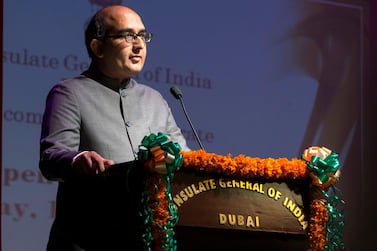A rise is anticipated in the number of UAE court cases seeking to recover funds from Indians who have fled home after defaulting on bank loans.
The prediction follows a recent New Delhi notification to allow enforcement of court judgments from the Emirates.
Quicker resolution of business disputes, contentious child custody and alimony cases is also likely after the Indian law ministry’s declaration of the UAE as a “reciprocating territory.”
The Ministry of Law and Justice notification last week in an Indian gazette has been widely welcomed. It officially identifies specific federal and local courts across the seven Emirates whose judgments will be recognised.
Moazzam Khan, head of global litigation at law firm Nishith Desai Associates, said the Indian government declaration corrected a decades-old anomaly.
“The judgment of a UAE court will now be enforced as if a judgment of an Indian court.” he said.
“The most important significance of the notification is that now you have been presented with a direct route. You can now take a UAE judgment and file an execution petition in India just like you would file an execution petition of a domestic decree given by an Indian court. We are going to see an increase in the number of cases coming from the UAE for enforcement in India.”
India has similar reciprocal arrangements with countries including Singapore, the UK, New Zealand and Hong Kong. A 1999 judicial cooperation treaty between the UAE and India did mutually recognise service of summons and execution of judgments. But since the courts in the Emirates were never listed or named, orders in this country were not enforceable in India.
Due to this glitch, UAE commercial and civil rulings were almost invalid in the South Asian nation.
Fresh law suits required to be filed in India making it an expensive and time-consuming process.
The confusion in some Indian courts about whether or not the UAE was a reciprocating territory has now been laid to rest, lawyers said.
“This has been a long-time in the coming,” Mr Khan said.
“In the absence of this notification, there was no real direct mechanism of enforcement of a UAE judgement in India. The entire need for a fresh new trial in India is given the go-by. There will be no need for examination, cross-examination of witness and rebuttals.”
Speedy resolution of divorce and family property cases involving non-resident Indians in the UAE is also anticipated.
Raka Roy, senior counsel at Galadari Advocates and Legal Consultants, is aware of divorce cases where it was “next to impossible” to execute UAE orders in India.
“It will easier for family cases to be settled and this is one of the big impacts,” she said.
In one case, a husband left the UAE and could no longer be held accountable to pay alimony ordered by a court in this country.
In another case, a mother took the child to India leaving the father without any visitation rights although a UAE court had granted him access.
“Once Indians left the UAE, they escaped the scope of a UAE judgment and people were discouraged to start fresh proceedings in India. They were also not sure if Indian courts would take the same decision as the UAE courts. Now parties can enforce UAE decisions in India and get an outcome.”
She said banks would be encouraged to pursue cases against hundreds of defaulters who owned millions of dirhams in unpaid debt.
“You will also see a situation where banks and financial institutions will take a step forward in cases with companies who have defaulted,” Ms Roy said.
“Cases were filed in the UAE but up until now defaulters who absconded to India knew they couldn’t be touched because an order from here was not effective. Banks were discouraged because there has been a bottleneck in these cases. This will change.”







